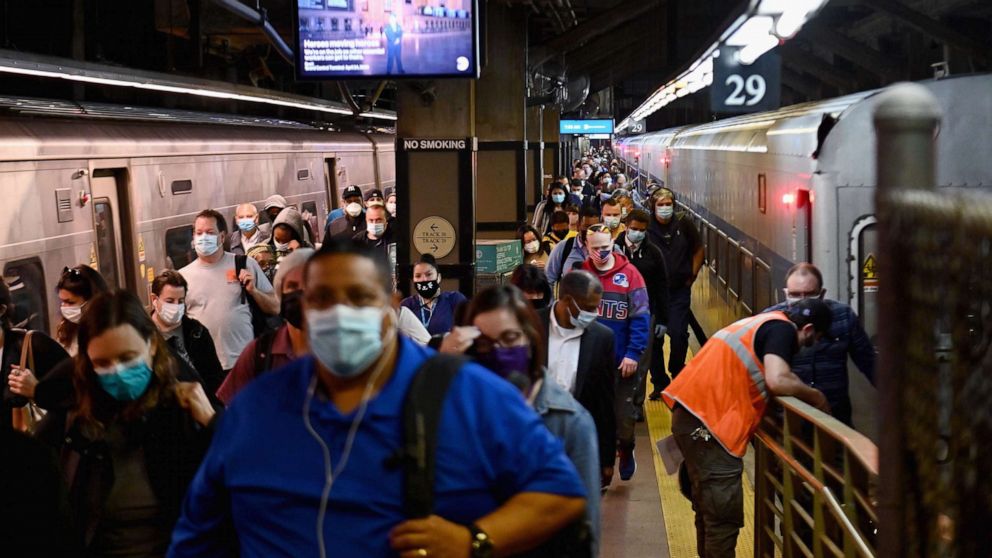NYC sees 1st signs of post-COVID-19 metropolis as it enters phase 1 reopening
The city that never sleeps was finally able to unpause.
New York City began phase one of its reopening plan on Monday, allowing nonessential businesses, manufacturing, construction and select other industries to continue their work, with special precautions issued to prevent the spread of the novel coronavirus.
Throughout the day, subways had more riders commuting to their workplaces, albeit with face coverings and distanced seating, factories and wholesalers allowed their workers into their facilities and stores allowed customers to pick up goods either curbside or by in-person appointments. Mayor Bill de Blasio said between 200,000 and 400,000 New Yorkers would be going back to work this week, and credited the city's strict stay-at-home order, social distancing and other health precautions for the June start date.
"We got here by hard work and discipline," he said during a news conference in Brooklyn.
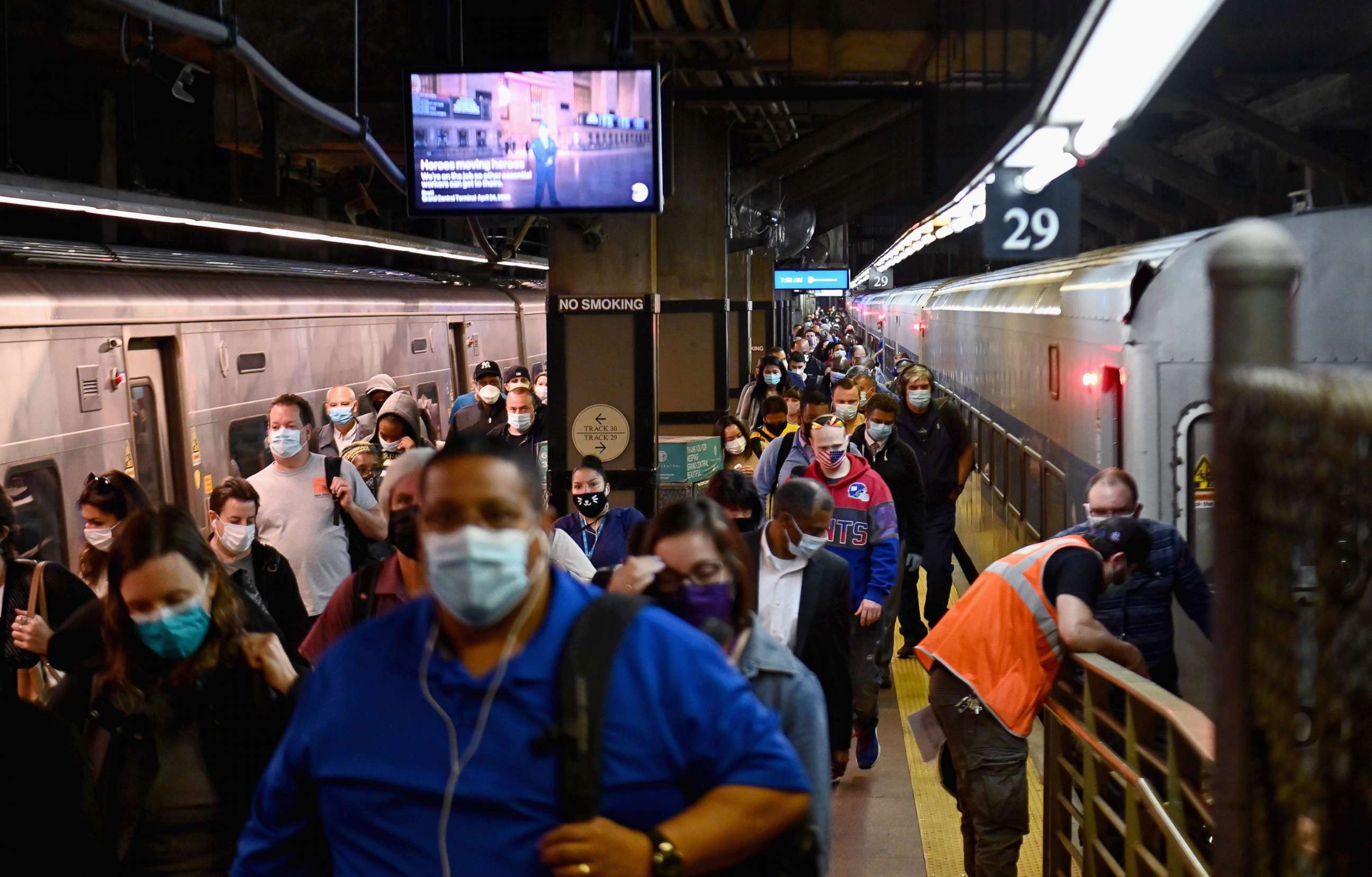
Despite the progress, de Blasio and Gov. Andrew Cuomo warned New Yorkers to remain vigilant, especially since the city has been the epicenter for COVID-19 cases and deaths.
New York City has 204,253 confirmed COVID-19 cases and 17,169 confirmed deaths as of June 8, according to the city's health department. Although those numbers are among the top listed in the country, the city has shown improvements over the last few weeks.
There were 59 new hospitalizations reported on June 6, compared to 850 on March 31, the city's health department said. The number of new deaths reported in one day peaked at 590 on April 7, but they have been under 60 since May 22, according to the data.
Cuomo said COVID-19 testing has gone up over the last few weeks and the results have shown progress. Over the last four days alone, over 262,000 New Yorkers were tested and the percent who were positive was under 1.6%, Cuomo's office said.
Nine weeks ago, 59% of New Yorkers who were tested had a positive result, according to Cuomo.
"These numbers say we can open," the governor said during a news conference in Manhattan on Monday.
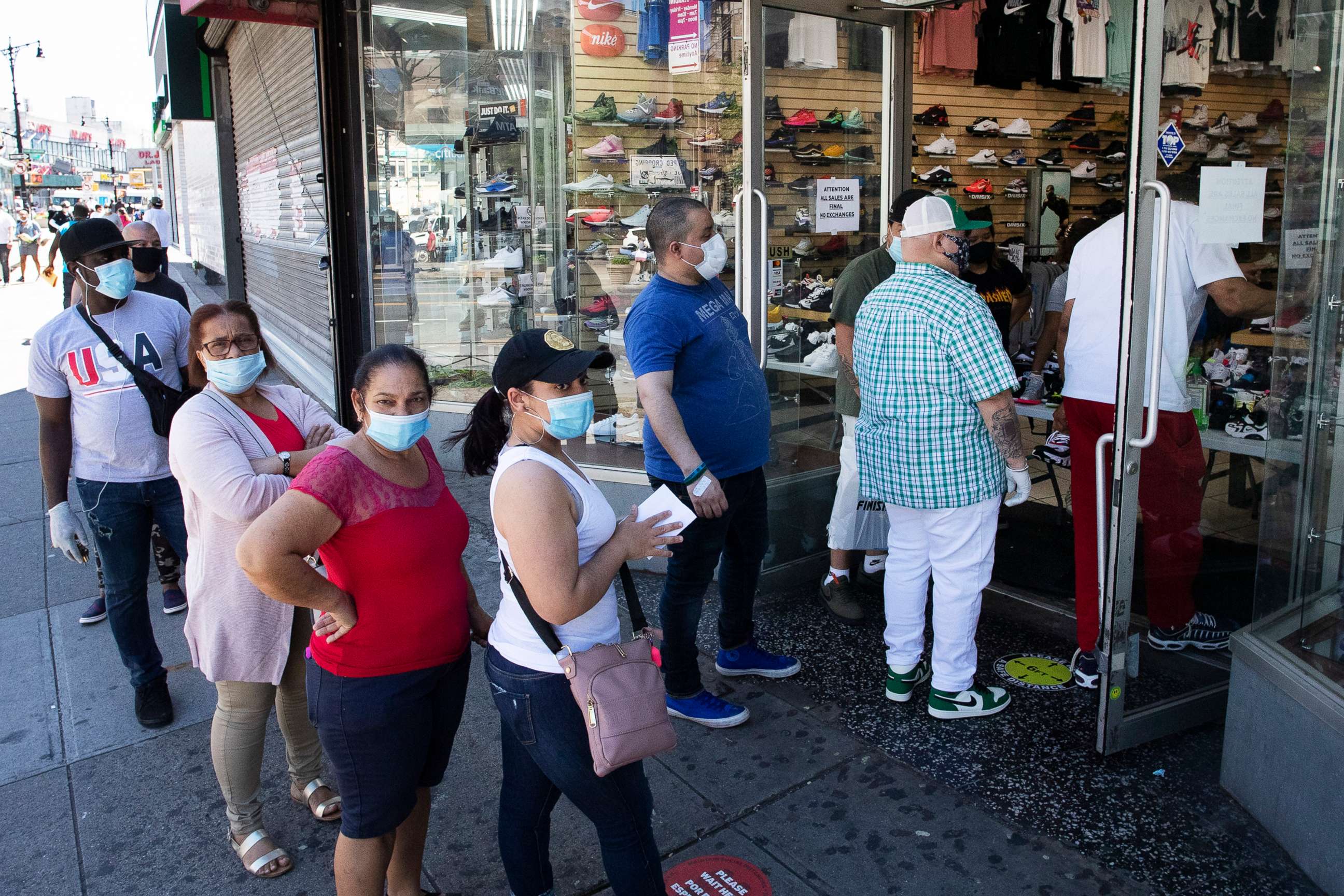
The reopening came amid major changes to the Big Apple norm.
Subways resumed their normal rush-hour service with more trains; however, they would still not run overnight due to cleaning procedures. New signs were put up in stations and on trains showing riders the correct space to socially distance, and all commuters were required to wear a face covering.
Commuter Manny Tejeva took the train from Jackson Heights, Queens, in the morning for the first time in three months and told ABC New York station WABC that he was impressed with the sanitary conditions.
"I finally feel safe," he said.
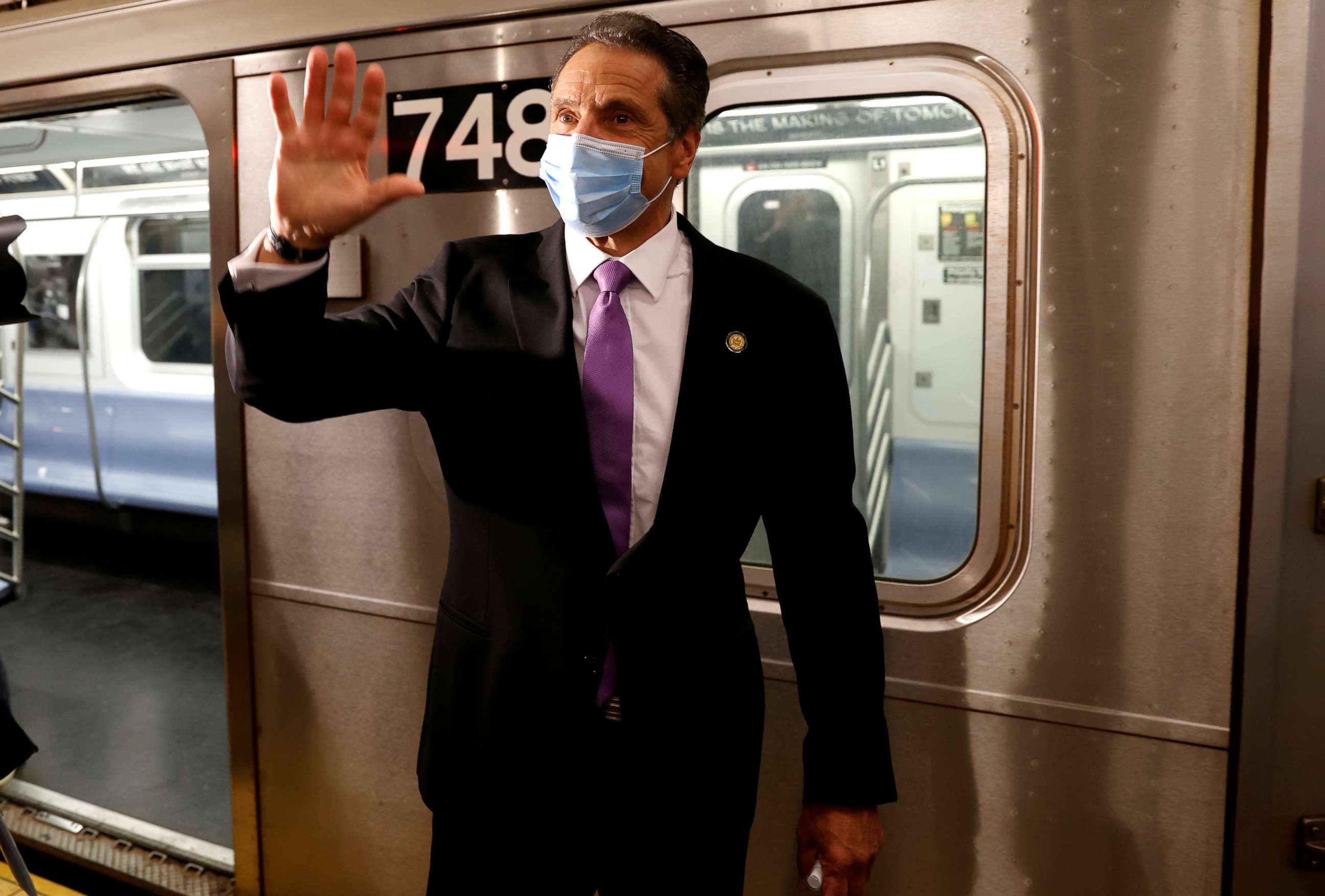
Both Cuomo and de Blasio took the trains to ensure they were safe and clean. The mayor said that the city would be deploying 800 officers to subways to encourage social distancing and hand out face coverings to those who need it.
"They are not there to do enforcement," de Blasio said of the officers.
The mayor added that the city would be keeping an eye on businesses and factories that have reopened to ensure they too are adhering to the phase one guidelines. All employees and customers of the reopened businesses must wear face coverings and stay six feet apart; items must be picked up either curbside or in-store pickup.
Cuomo reiterated that these rules must be followed, and noted that other states, such as Texas and Florida, saw increases in their COVID-19 cases after they reopened because they didn't have strict measures in place.
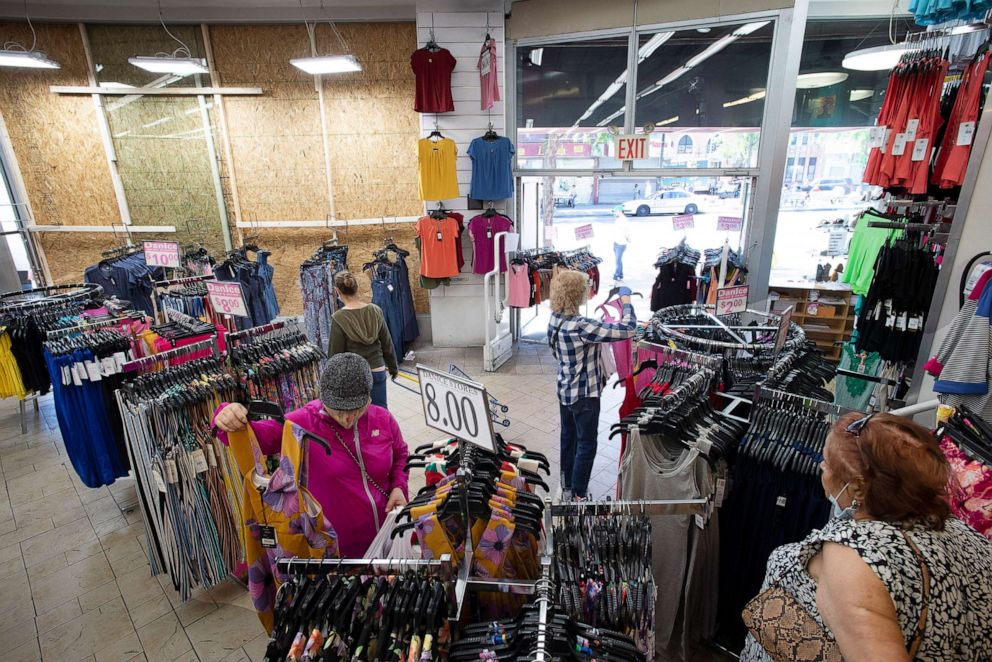
"These guidelines work. They have been enacted in every other region in the state," the governor said. "There has been no spike, we know it works."
When asked about New Yorkers who still may be hesitant to go to work, de Blasio said they should use their own discretion and do what's best for their own health.
"I think New Yorkers are very pragmatic and resilient and they are going to watch. If they see things are working, they will come out," he said.
